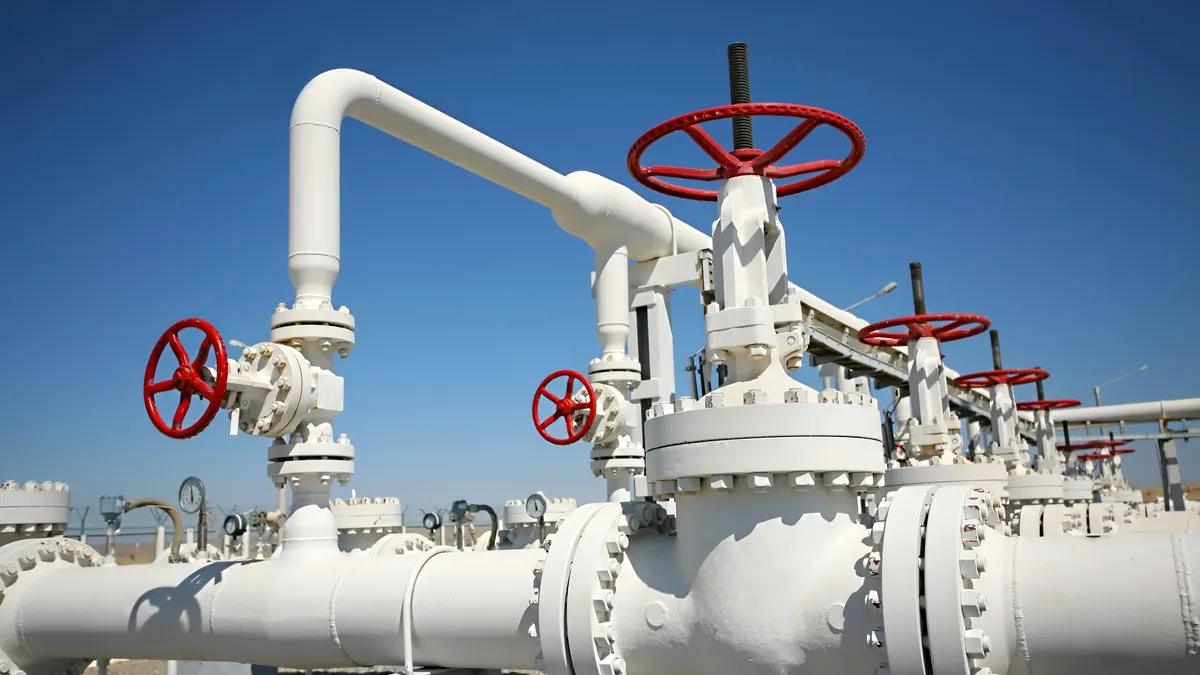The following is a contributed piece by Moneen Nasmith, senior attorney at Earthjustice.
The science is clear that the world must make rapid and immediate reductions to greenhouse gas emissions to stave off climate catastrophe. The latest report by the Intergovernmental Panel on Climate Change directs that emissions must peak by 2025 and be cut nearly in half by 2030. To avert the worst impacts of the climate crisis, we must urgently move away from fossil fuels and power our entire economy on clean energy. We need a swift and equitable transition that benefits everyone — especially the communities on the frontlines of pollution. This is the defining challenge of our time, and every part of government has a role to play.
The Federal Energy Regulatory Commission is tasked with reviewing proposed interstate gas infrastructure projects and liquefied natural gas import and export terminals. When FERC reviews gas projects, it must consider the costs and benefits of these projects and only approve those that are in the public interest. But for too long, this balance has tilted in favor of fossil fuel companies.
Federal law requires FERC to consider a broad range of factors when assessing how gas infrastructure projects, like pipelines and export terminals, impact the public. Gas projects often cause significant harm to the climate and communities. They release methane pollution — a potent greenhouse gas that is a major contributor to the climate crisis — and facilitate the burning of fossil fuels for decades to come. And they degrade air quality and threaten public health, often in low-income communities and communities of color already overburdened with pollution.
But FERC has long overlooked the environmental costs of gas projects while accepting unsubstantiated claims by industry about their alleged benefits. The agency has historically rubberstamped nearly all the gas projects that came before it, without seriously considering whether they are even needed. As a result, these projects have been vulnerable to litigation — and FERC and the pipeline industry keep losing in court.
Most recently, the D.C. Circuit Court ruled in March that FERC failed to adequately assess the greenhouse gas emissions from a compressor station and gas pipeline in Massachusetts. Food & Water Watch and Berkshire Environmental Action team, a community group, filed a lawsuit challenging FERC’s approval of the project without considering climate impacts. The court agreed and ordered FERC to redo its environmental analysis.
To improve its broken review process, FERC recently proposed two common-sense policies to consider adverse effects like greenhouse gas emissions and environmental injustice when it reviews gas projects. The first outlines four factors the agency will consider before approving pipeline projects, including environmental impacts and the interests of environmental justice communities. The second lays out how the agency will quantify and evaluate the impacts from greenhouse gas emissions from a gas project, including pipelines and export terminals. These policies better balance the pros and cons of building new gas projects — something the courts have effectively been directing FERC to do.
Predictably, the fossil fuel industry and their political allies came out in full force to attack the new policies and pressure FERC to weaken and delay implementation of its policies. Gas companies claimed the new policies create uncertainty and will reduce investment in new pipelines and export terminals. But the reality is that the policies will reduce uncertainty for all stakeholders by ensuring that new projects are legally sound.
In a Senate Energy and Natural Resources Committee hearing on FERC’s policies, industry-allied politicians echoed the gas industry’s talking points. Sen. Joe Manchin, the Democratic chair of the committee, called the policies a threat to national security and energy independence. Sen. John Barrasso, the committee’s top Republican, claimed that the policies were part of a "war on American energy."
This empty fearmongering exposed the hypocrisy of the gas industry and their allies. If they are so confident about the benefits of their proposed projects, why are they so afraid of an adequate review?
Unfortunately, all of this overblown criticism worked. Just weeks after passing its pipeline policy, FERC took a step back and said it would consider changes based on industry feedback. And FERC decided not to apply it, or its proposed greenhouse gas policy, to pending projects while it takes comments and finalizes the policies. As a result, FERC may continue to approve new gas projects without a thorough environmental review or sufficient evidence that they are needed.
FERC's backtracking is a mistake. Industry and their allies will keep pushing their deregulatory agenda, and FERC can’t appease them and do their job at the same time. The status quo isn’t working, and frontline communities and the planet can’t afford any more delays.
FERC must quickly finalize the strongest possible policies to ensure a clear process that accounts for the true costs of fossil fuel projects, including climate and environmental justice impacts. Earthjustice and our partners are working to submit comments on FERC’s policies and ensure they are aligned with U.S. climate and environmental justice commitments. The changes FERC is proposing are steps in the right direction, but FERC can do more, including by ensuring that its decisions are consistent with state and other jurisdictions’ plans to reduce greenhouse gas emissions and get off gas.
It’s time for FERC to do its job and embrace a concept of the “public interest” that puts the needs of people and the planet over corporate polluters. We will continue to use the power of the law to hold polluters and government accountable and fight for a secure, pollution-free, 100% clean energy future.






















